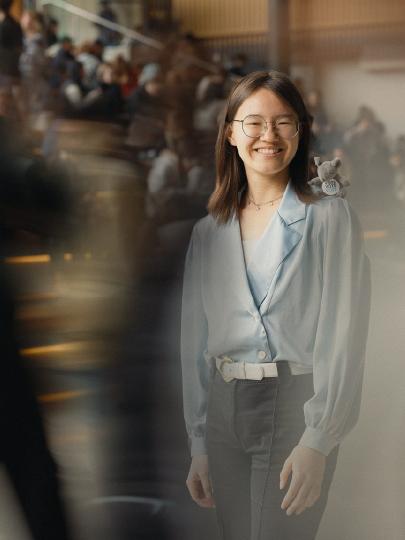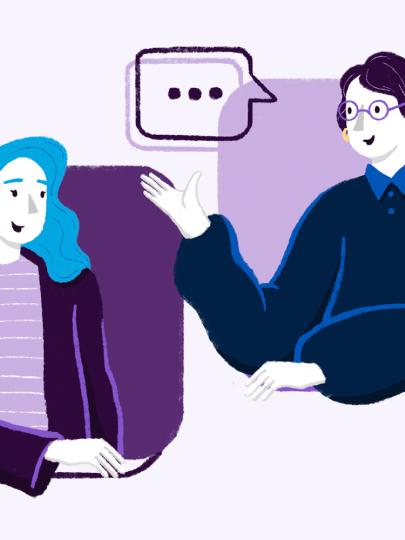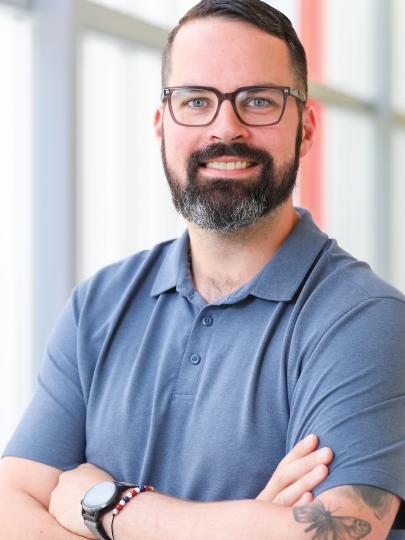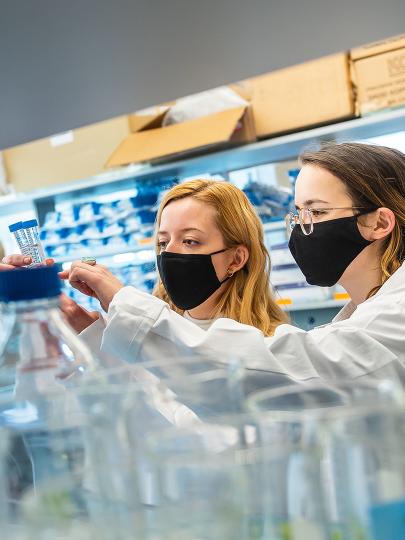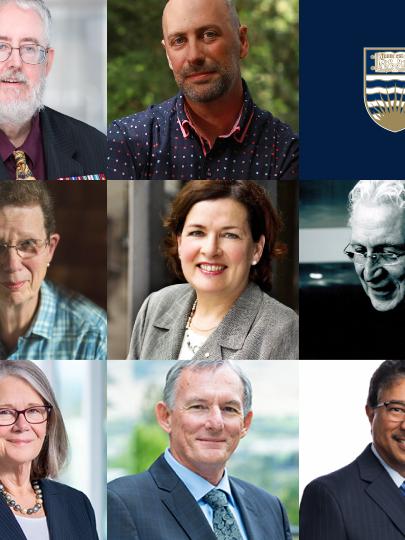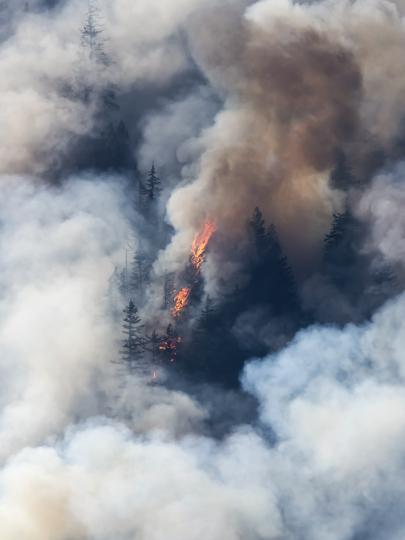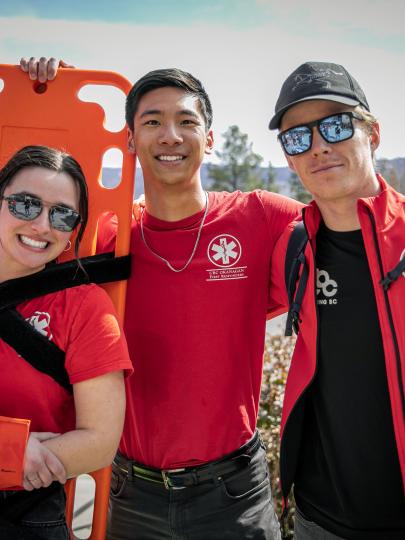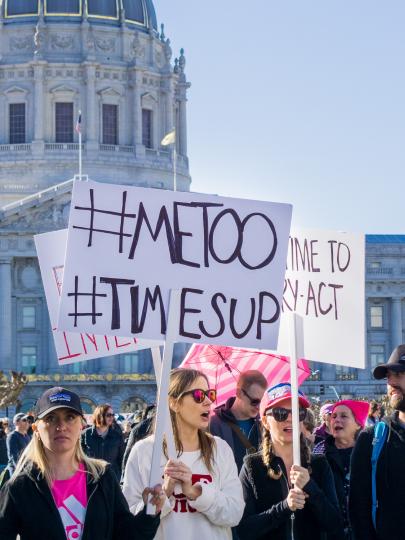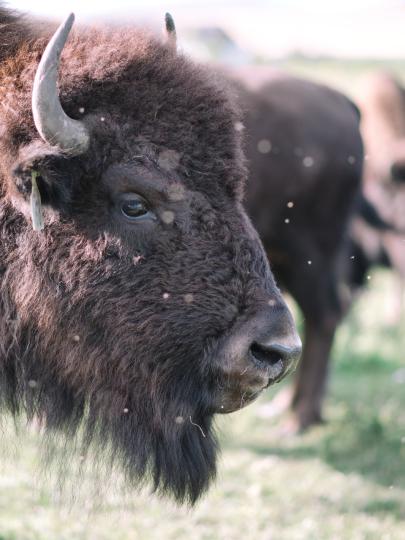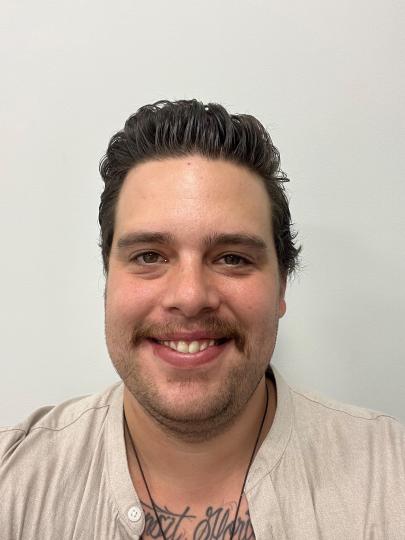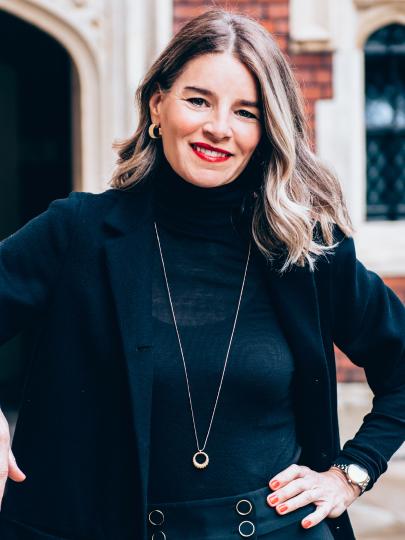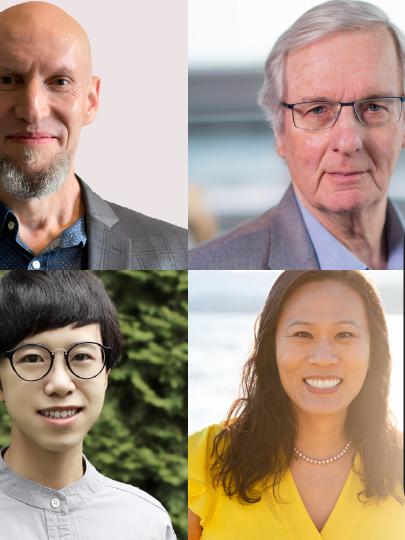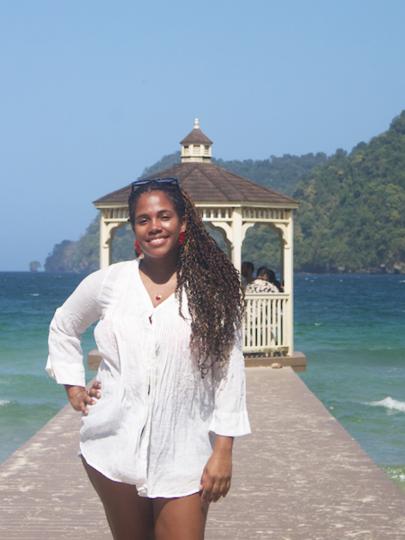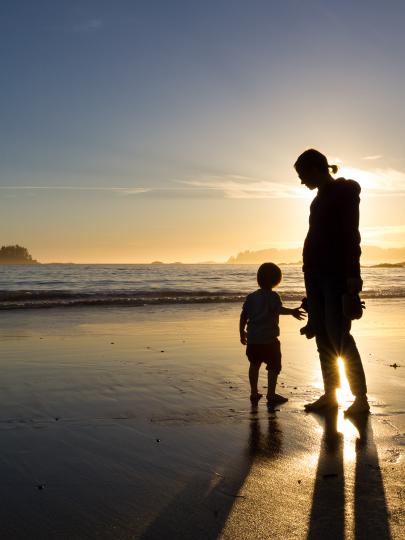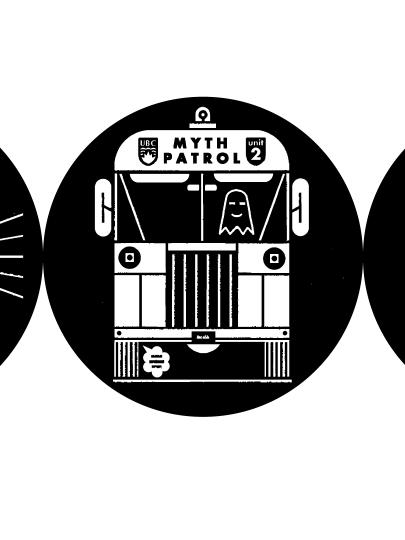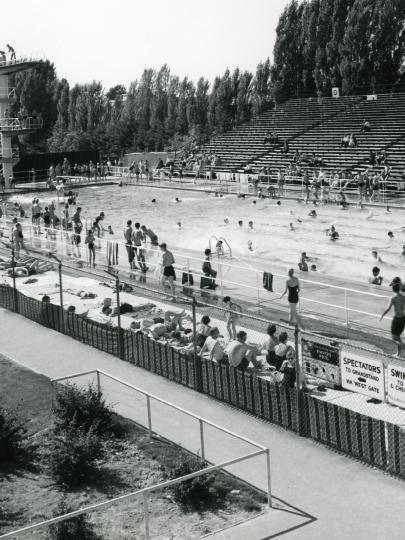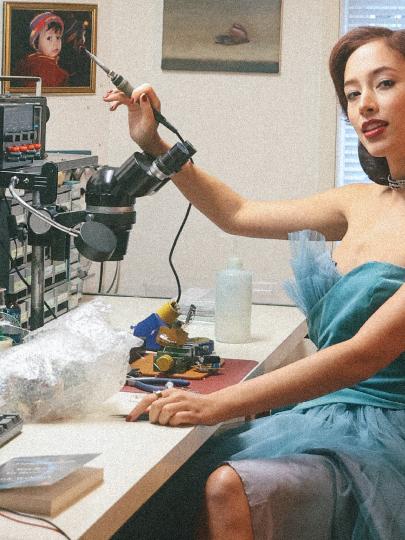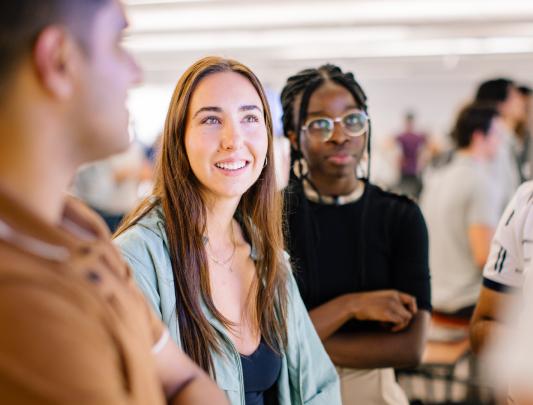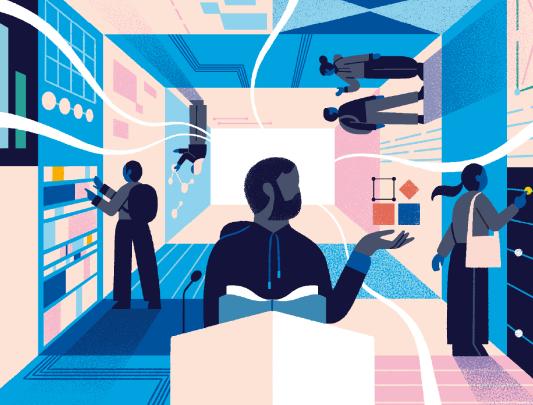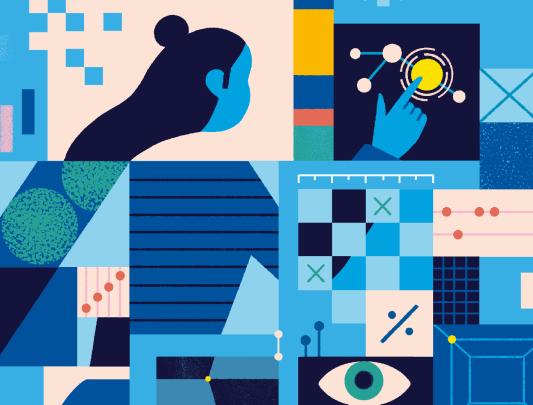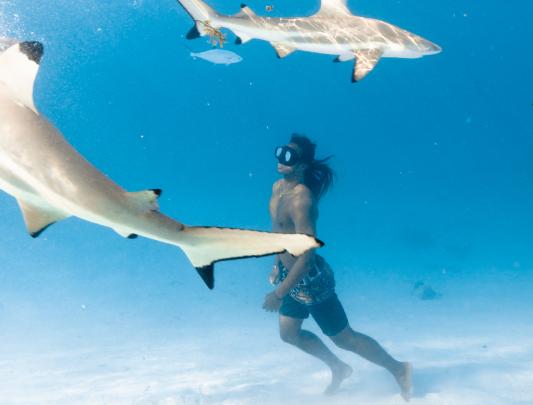
afterwords
Casey Hamilton
Launching in celebration of UBC Okanagan’s 15th anniversary in 2020, alumni UBC’s afterwords is a digital conversation series that shares the stories of some of UBC Okanagan’s extraordinary alumni in 15 questions.
Meet Casey
A community-focused alumna from the UBC Okanagan and Vancouver campuses, she currently resides in Kelowna.
1. What is your name?
Casey Hamilton
2. What education did you receive at UBC?
UBC Vancouver: BSc’07 (FNH in Dietetics)
UBC Okanagan: MSc’17 (interdisciplinary studies)
3. Why did you choose to study at UBC?
I grew up in a single parent, low income household and university was not something that I was encouraged to do, and so I believed for a while that it was not an option for me. In my early 20s, I moved to Vancouver to get to know my dad. When I first moved there I decided to visit the UBC campus and grabbed a UBC calendar (I didn’t have a computer in those days!). I remember how beautiful and vibrant the campus felt. I knew I wanted to go to school there. I flipped through the calendar and found the Bachelor of Science in Food, Nutrition, and Health (Dietetics) and knew that was my path! I spent a couple of years upgrading and finally made my way into UBC. I completed my degree and then moved to Kelowna for my dietetic internship. After living in the Okanagan for a few years, I knew I wanted to continue my education and decided to pursue a Masters at the Okanagan campus.
4. If you could start University again, would you do anything differently?
If my life circumstances were different, I would have been more involved with things happening on campus like join a club or do other fun extracurriculars. In my undergrad, I didn’t even know there were clubs to be involved in! During both my degrees at UBC, I worked full time while going to school full time, so this left little time for extracurriculars.
5. What was your first official job after graduation?
My first job after graduating from my undergrad was as a Public Health Dietitian with Interior Health. It was a really cool first job and has shaped who I am today. In my role I first worked in pregnancy and infant nutrition, supporting higher-risk moms in the community. It was through this role that I was introduced to working in food security and to the social determinants of health. Through this role I knew I wanted to work on our social, political, and economic systems and how they impact health.
6. What is your current profession?
I wear a lot of different hats! I happen to work at UBC Okanagan as a Campus Health Specialist. In this role I work as a community developer, researcher, and health promoter where I engage students, staff, and faculty to improve systems, processes, and policies that impact wellbeing on our campus. I work on several projects at a time but a highlight that I am working on right now is researching and conducting a community consultation for a community food centre for the Okanagan campus. I do all sorts of other cool projects related to food security, harm reduction, physical activity, built and natural environments, and more! I am really proud to have been part of the team that hosted the 2015 International Conference of Health Promoting Universities and Colleges and developed the Okanagan Charter, which is being adopted by post secondary institutions around the world.
I also started and am the Executive Director of a charity in the Okanagan called the Okanagan Fruit Tree Project Society. Through this charity, people in our community can connect with their local food system in an empowering way that is free of stigma. Through our gleaning program and a farming program, we support over 50 non-profits and schools in the Okanagan with fresh fruit and vegetable donations. Through my role I focus on strategy, fund development, IMIT, and other duties required to run a small charity but it’s always fun to be out in the fresh air harvesting fruits or digging in the dirt!
7. What is the best part of your job?
I’m helping change the world for the better! I realized right away when I first became a Dietitian that I was excited about changing systems. I have a strong moral compass and working in systems change is the perfect outlet. Working on systems/process/policies change is long-term work and takes a lot of patience and strategy. I like the relationship development that happens and I especially enjoy the empowerment of people who wouldn’t have otherwise believed that they can make a difference.
8. What are some of the challenges you have faced in your career?
I think overall I’ve had a pretty great career, but that’s only because I worked for it! When I first started in my career, I walked through just about every door that opened for me. I served on Boards, I attended community events, and I went to conferences and networking sessions. It’s truly amazing to see how far I’ve come in only 13 years.
My challenges have always been my own internal struggles. I manage with mental health issues that I will have for the rest of my life. Coming to grips with that and learning how to reconcile that with my career has been a huge learning curve. It’s been really important to know when to push through and when to honour my needs to take a break.
9. What would you like to share with current students who will be graduating in the coming years who have concerns with the current work climate?
There are so many great opportunities out there that you wouldn’t have expected! Try not to focus on the bad news stories out there. The thing with careers is that they are always evolving. Even though one industry might be slowing down there are many more that are just getting started. You might be tired of hearing “you need to get yourself out there”, but seriously, you do!
10. What’s the best advice you can give to help plan a career?
Most job and career advancement opportunities happen when you become involved in your community. Go to community events about issues you care about or topics that interest you. Volunteer in your community with a non-profit or charity that supports a cause you are interested in. Attend conferences, take seminars, go to networking sessions, or serve on a Board of Directors. Through all these opportunities you will learn new things and meet new people. Many opportunities will present themselves to you if you keep your eyes and ears open!
11. Do you have a mentor? How have they influenced you?
No, but I’m gladly accepting applications for that position! Although I don’t have a mentor, I do draw inspiration from all around me. There are many people that I have encountered along my path that I admire greatly. Whenever I find myself admiring someone I always ask myself why. I then work to emulate that quality in me.
12. How and where do you find inspiration?
Inspiration is everywhere. People, events, books, TV, YouTube. I like to hear stories about people or organizations and their adventures, ideas, and struggles. I am a lifelong learner. Keeping an open mind while remaining clear on your priorities is important. My issue isn’t finding inspiration, it’s having so much inspiration that sometimes I don’t know where to start.
13. How do you balance your work and home life?
This is an ongoing struggle for me and is something I am seeking to balance in my life. Because I worked so much for so long, I didn’t have any hobbies. I had a bit of an identity crisis! Who is Casey without work? It’s weird to say that I had to consciously find something to do that wasn’t work. I found something I truly love: beekeeping. I started reading about it a few years ago and then adopted my first bees last year.
Another thing I’m focusing on is dedicating some time each day to decompress and just be. This usually means going for a walk alone, no matter the weather, without any technology distractions.
14. Do you have any books that you would suggest are a must read?
I just recently finished reading the Truth and Reconciliation report. This was a tough read but I think it is important for all Canadians to read.
I have read all of Brene Brown’s books and think they are really important for people like myself in leadership that also grapple with mental health concerns.
Doughnut Economics by Kate Raworth is a great book about how to reframe economics in such a way that factors social and environmental wellbeing.
Nonviolent Communications by Marshall Rosenberg is an important read if you want to learn how to have tough conversations that support all parties in a conversation.
15. Who is one UBC Okanagan alum you would like to nominate for afterwords?
Ailsa Beischer
